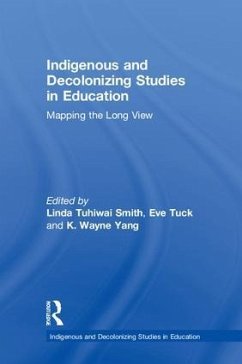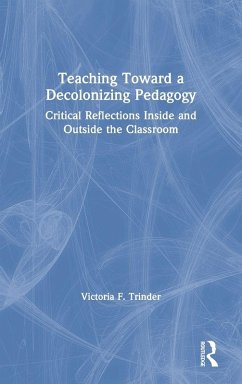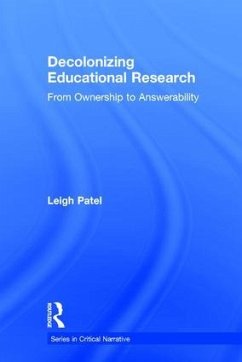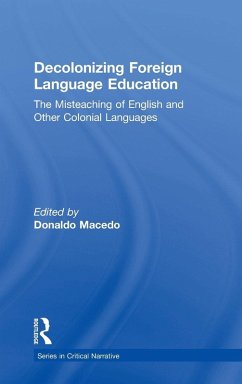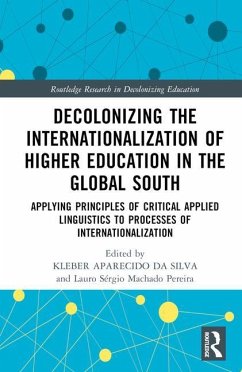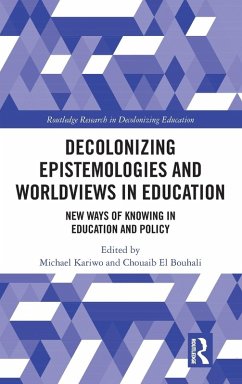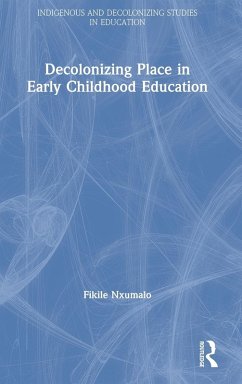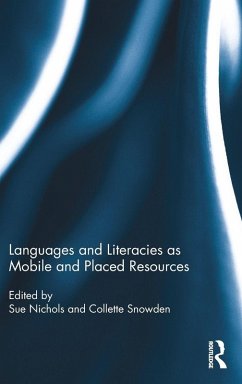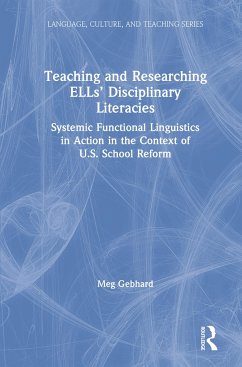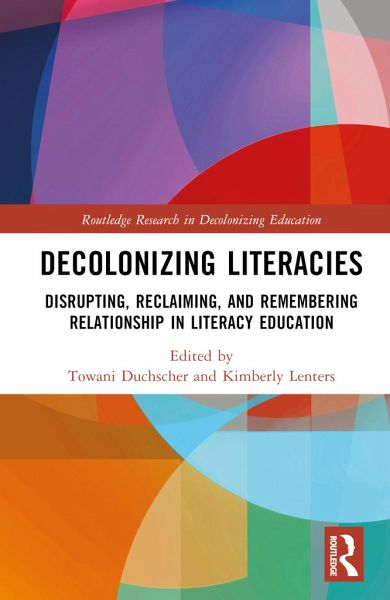
Decolonizing Literacies
Disrupting, Reclaiming, and Remembering Relationship in Literacy Education
Herausgeber: Duchscher, Towani; Lenters, Kimberly
Versandkostenfrei!
Versandfertig in 1-2 Wochen
167,99 €
inkl. MwSt.
Weitere Ausgaben:

PAYBACK Punkte
84 °P sammeln!
This volume examines the ways in literacy has been used as a weapon and a means for settler colonialism, challenging colonized definitions of literacy and centring relationships as key to broadening understandings. It begins by confronting the multiple ways that settler colonialism has used literacy and definitions of literacy as a gatekeeper to participation in society. In response to settler colonialism's violent acts of extraction, displacement, and replacement enacted upon the land, the resources, the people, and understandings of literacy, the editors propose a unique approach to decoloni...
This volume examines the ways in literacy has been used as a weapon and a means for settler colonialism, challenging colonized definitions of literacy and centring relationships as key to broadening understandings. It begins by confronting the multiple ways that settler colonialism has used literacy and definitions of literacy as a gatekeeper to participation in society. In response to settler colonialism's violent acts of extraction, displacement, and replacement enacted upon the land, the resources, the people, and understandings of literacy, the editors propose a unique approach to decolonizing understandings of literacy through a triangulation of disruption, reclamation, and remembering relationships. This is enacted and explored through a range of diverse chapter contributions, written in the form of stories, poems, artworks, theatres, and essays, allowing the authentic voices of the authors to shine through, and opening up the English Language Arts as a space for engagement and interpretation with diverse, racialized understandings of literacy. Disrupting Eurocentric, colonized understandings that narrowly define literacy as reading and writing the colonial word, and advancing the movement to decolonize education, it will be of key interest to scholars, researchers, and educators with interest in literacy education, decolonizing education, anti-racist education, inclusive education, land-based literacy, and arts-based literacy.





